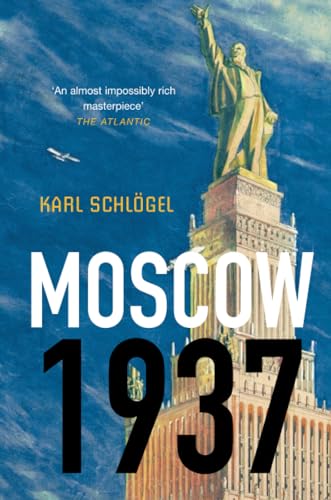Moscow, 1937
Karl Schlögel
BOOK REVIEW

In the heart of turmoil and uncertainty, Moscow, 1937 by Karl Schlögel unfolds like a dense tapestry woven from the fabric of human experience. This isn't just a historical narrative; it is an exploration of the soul of a city grappling with fear, propaganda, and the relentless weight of power. If you've ever felt the pulse of a metropolis or the stifling breath of history, this book will strike a chord deep within you.
Set against the backdrop of a Joseph Stalin-led Soviet Union, 1937 was a year punctuated by political purges, paranoia, and an almost palpable tension in the air. Schlögel transforms this chaotic era into vibrant prose, allowing readers not just to observe, but to feel the chill of the winter air and the heaviness of every whispered conversation. He turns the streets of Moscow into characters of their own-each alley, each landmark bespeaking stories of fear and survival.
As you delve into the pages of Moscow, 1937, you are not merely reading about historical events; you are thrust into the very essence of life under Stalinist rule. Schlögel intricately weaves stories of ordinary citizens, intellectuals, and artists, each grappling with the profound contradictions of their existence. You'll find yourself sharing in their dread as they navigate through a society where loyalty could mean the difference between life and death, and where a mere rumor could unravel a whole life. The tension is as thick as the heavy winter coats worn by the characters, and as you read, you can almost feel the icy breath of an oppressive regime on your neck.
Readers rave about Schlögel's lens, calling it a refreshing dive into a dark chapter of history, offering a narrative that's both insightful and eye-opening. Yet, there are criticisms too. Some argue that the tome can be dense, at times overwhelming with the sheer volume of detail. But isn't that the beauty of exploring history? The intricacies of life in Stalin's Moscow reflected in the minutiae of daily existence provoke a powerful dialogue. These reflections compel you to think critically about the past and its reverberations in contemporary society.
This remarkable work is meticulously researched, with Schlögel offering not just the narrative but also the context that enriches every chapter. His exploration doesn't merely scratch the surface; it digs deep, exposing the underbelly of a regime that manipulated truth. The reader is left to wonder-how much of our current narratives are shaped by those in power? It's a question that lingers long after closing the book, igniting debates not only about history but also about our world today.
The historical significance of Moscow in this period cannot be overstated. This was a time when art and literature thrived in the shadows of state mandates, where figures like Anna Akhmatova and Mikhail Bulgakov penned works that questioned reality while staring it in the face. Schlögel brings these ghosts of the past to life, stirring emotions that run the gambit from rage to sorrow, and transporting you into the very heart of cultural resistance.
Every page echoes with the laughter and anguish of those who dared to express themselves amidst the cracking ice of repression. You feel compelled to bear witness to their stories. Their struggles become yours, and the fight against the machinations of power feels as poignant today as it did nearly a century ago.
In essence, Moscow, 1937 is not a passive read-it's a call to arms against the forgetting of history, against the complacency of silence. It's a reminder that the stories of the brave and the weary deserve to be recorded, and that the act of remembering is an act of defiance against erasure.
So, while you may come for the history, you stay for the humanity. You finish Moscow, 1937 not with a sense of closure, but with a feeling of urgency-a need to understand the echoes of the past and their impact on our present. Dive into this towering narrative that refuses to let you forget. The streets of Moscow are calling, and their stories are waiting to be discovered. 🌍📖
📖 Moscow, 1937
✍ by Karl Schlögel
🧾 680 pages
2014
#moscow #1937 #karl #schlogel #KarlSchlogel